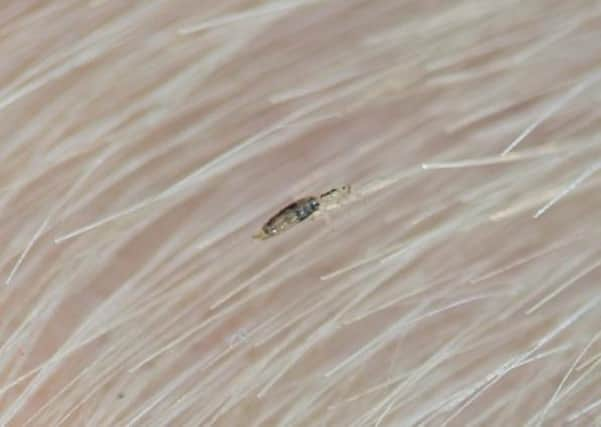Get on top of head lice and nits


Very common in young children and their families, head lice and nits don’t have anything to do with dirty hair and are picked up as a result of head to head contact.
Measuring no more than three millimetres long, head lice can be difficult to spot.
Advertisement
Hide AdAdvertisement
Hide AdHead lice eggs, known as nits, are either brown or white (when empty) and attached to the hair.
Head lice can make your head feel itchy and like something is moving in your hair, and the only way to be sure if someone has head lice is by finding live lice.
You can look for head lice by combing the hair with a special fine-toothed comb, which can be bought online or at your pharmacy.
If you find evidence of head lice you should treat them as soon as you spot them, and remember – you can treat head lice without seeing your GP.
Advertisement
Hide AdAdvertisement
Hide AdIn addition to treating head lice as soon as you spot them, you should check everyone in your house and start treating anyone who has head lice on the same day.
There is no need to keep your child off school if they have head lice.
Head lice and nits can be removed by wet combing, which is the first thing to try. This involves using a fine toothed comb and following these steps:
Washing hair with ordinary shampoo
Applying lots of conditioner
Combing the whole head of hair from the roots to the ends
Wet combing on days 1, 5, 9 and 13 will help to catch any newly hatched head lice. You should then check on day 17 that everyone’s hair is free of lice.
Advertisement
Hide AdAdvertisement
Hide AdIf you have tried wet combing for 17 days and your child or family member still has head lice, you should ask your pharmacist for advice – they may recommend using medicated lotions and sprays, that kill head lice in all types of hair, and which can be bought from pharmacies, supermarkets or online.
Having used a lotion or spray, head lice should die within one day, however, some treatments need to be repeated after a week to kill any newly hatched lice. Don’t forget to check the pack first to make sure the lotion or spray is okay for you or your child or family member, as well as how to use them.
Some treatments are not recommended because they’re unlikely to work, including products containing permethrin, head lice “repellents”, electric combs for head lice, and tree and plant oil treatments, such as tea tree oil, eucalyptus oil and lavender oil herbal remedies.
Ultimately there’s nothing you can do to prevent head lice, but you can help stop them spreading by wet or dry combing regularly to catch them early. Don’t use medicated lotions and sprays to prevent head lice, they can irritate the scalp, and there’s no reason for children to stay off school or to wash laundry on a hot wash.